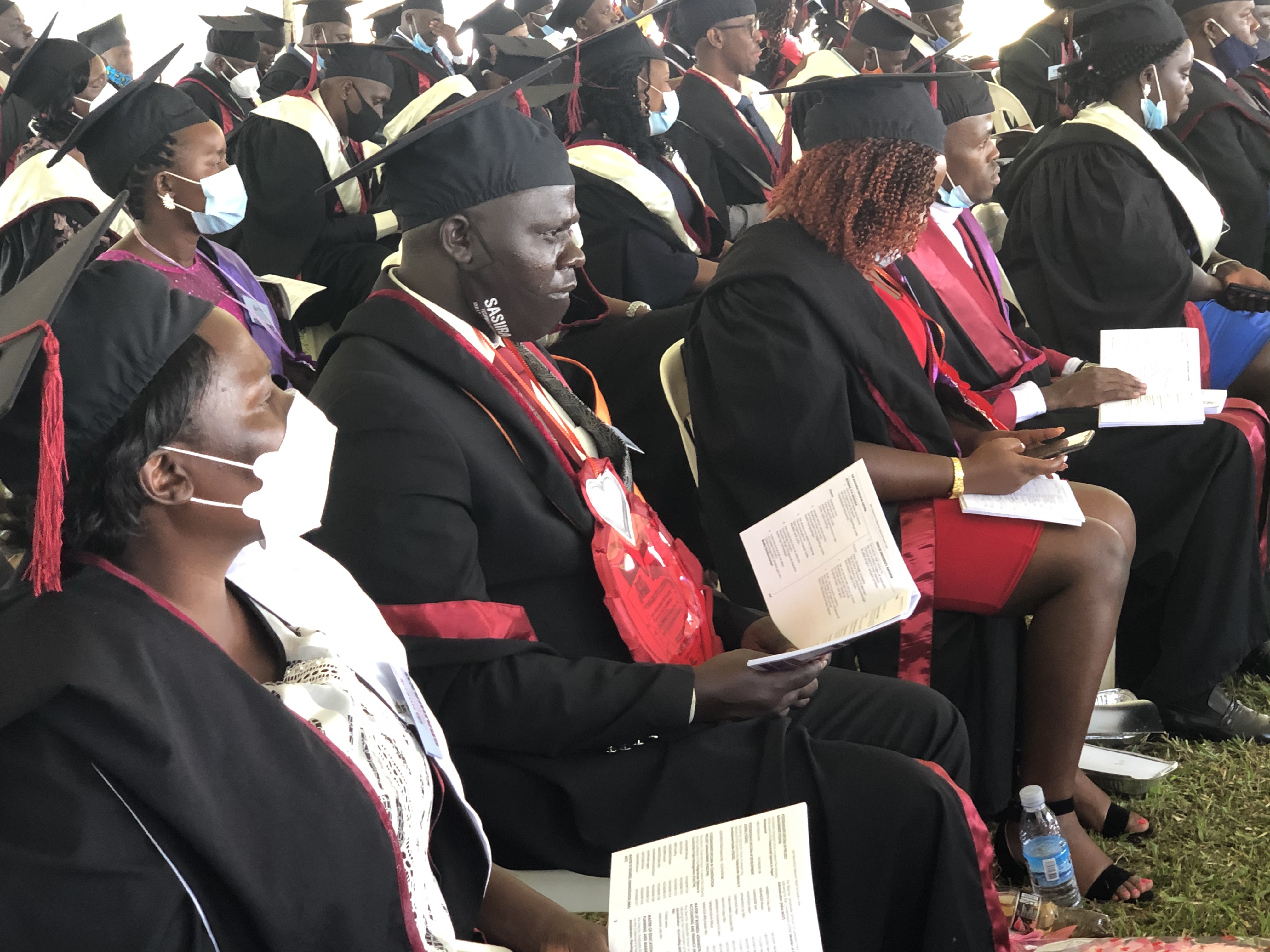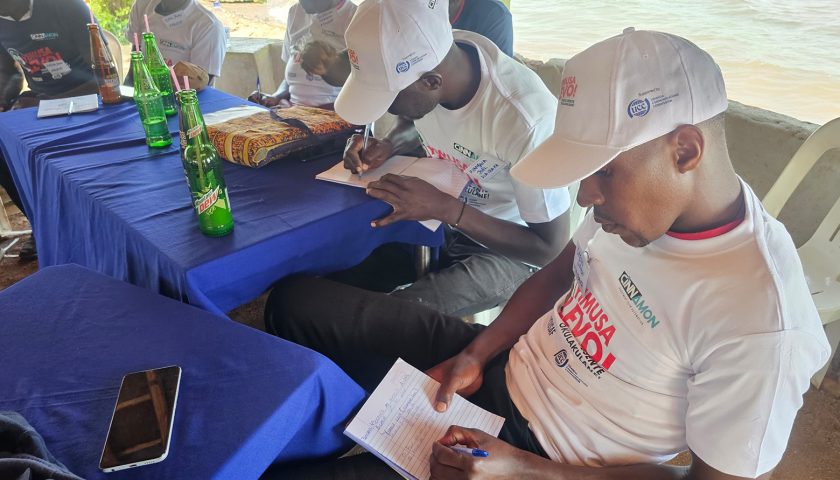The former Executive Director of the Uganda National Bureau of Standards (UNBS), Eng. Dr. Ben Manyindo has advised graduands from Ndejje University to use the earned skills to create jobs for themselves and those around them.
Manyindo made the call while officiating at the 22nd hybrid graduation ceremony of Ndejje University organized under the theme; “Online Education; a strategy to flexible and quality higher education “.
A total of 1676 students graduated of which 793 (47.3%) were male and 883 (52.7%) were female.
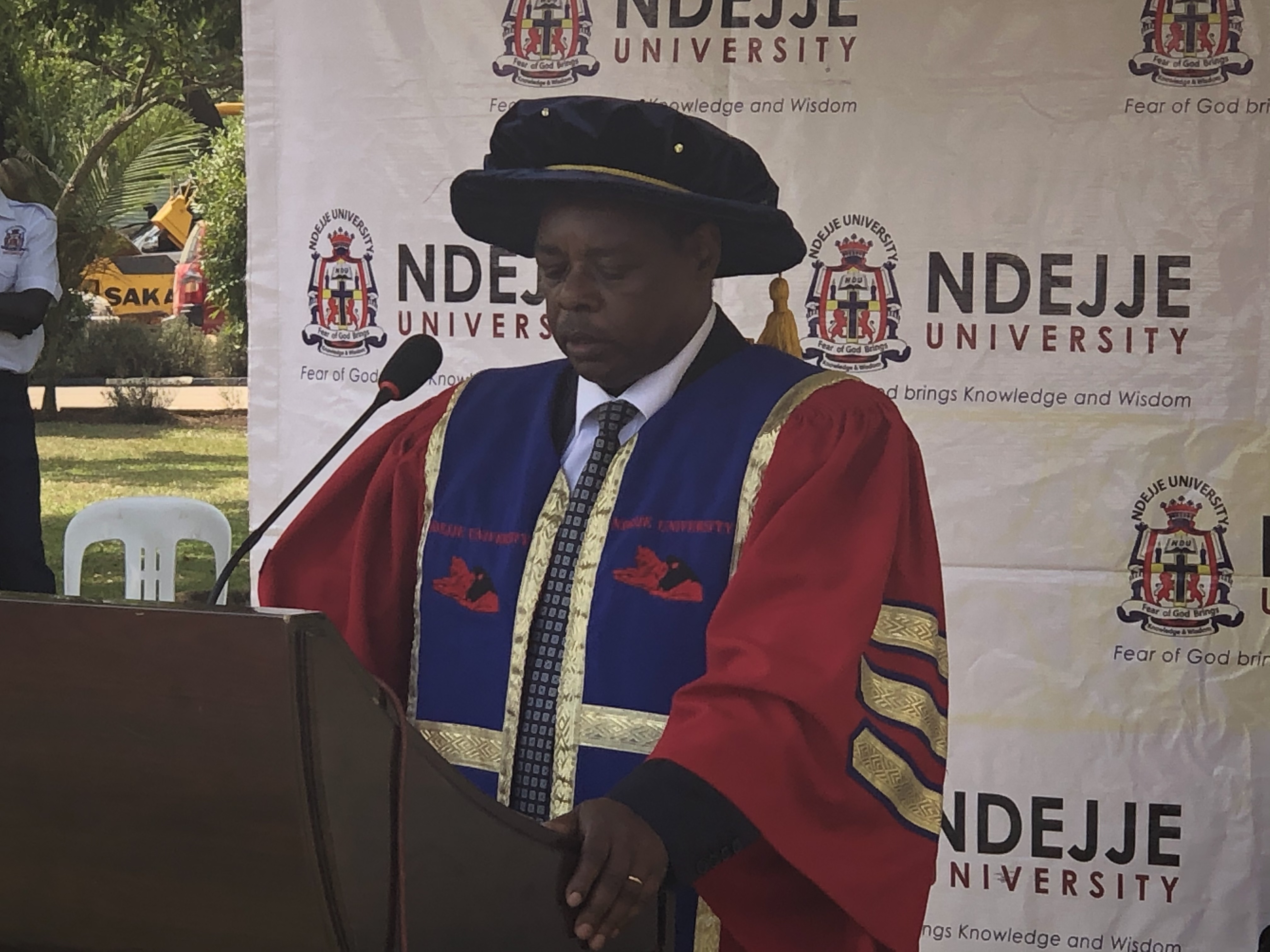
Manyindo noted that the job sector has been greatly affected by the COVID-19 pandemic were government as well as the private sector is planning to downsize staff.
“Most of us think that jobs are in government but this is no longer the case, COVID-19 has shut even the private sector; one should now look inward, look at yourself and see the skills you have to be able to create your own job,” Manyindo said.
Commenting on the graduation theme, Manyindo noted that the COVID-19 pandemic has shifted the mode of teaching and learning from only face to face to online in the higher education which is a new experience and practice for many of the teachers and learners mostly in the developing countries.
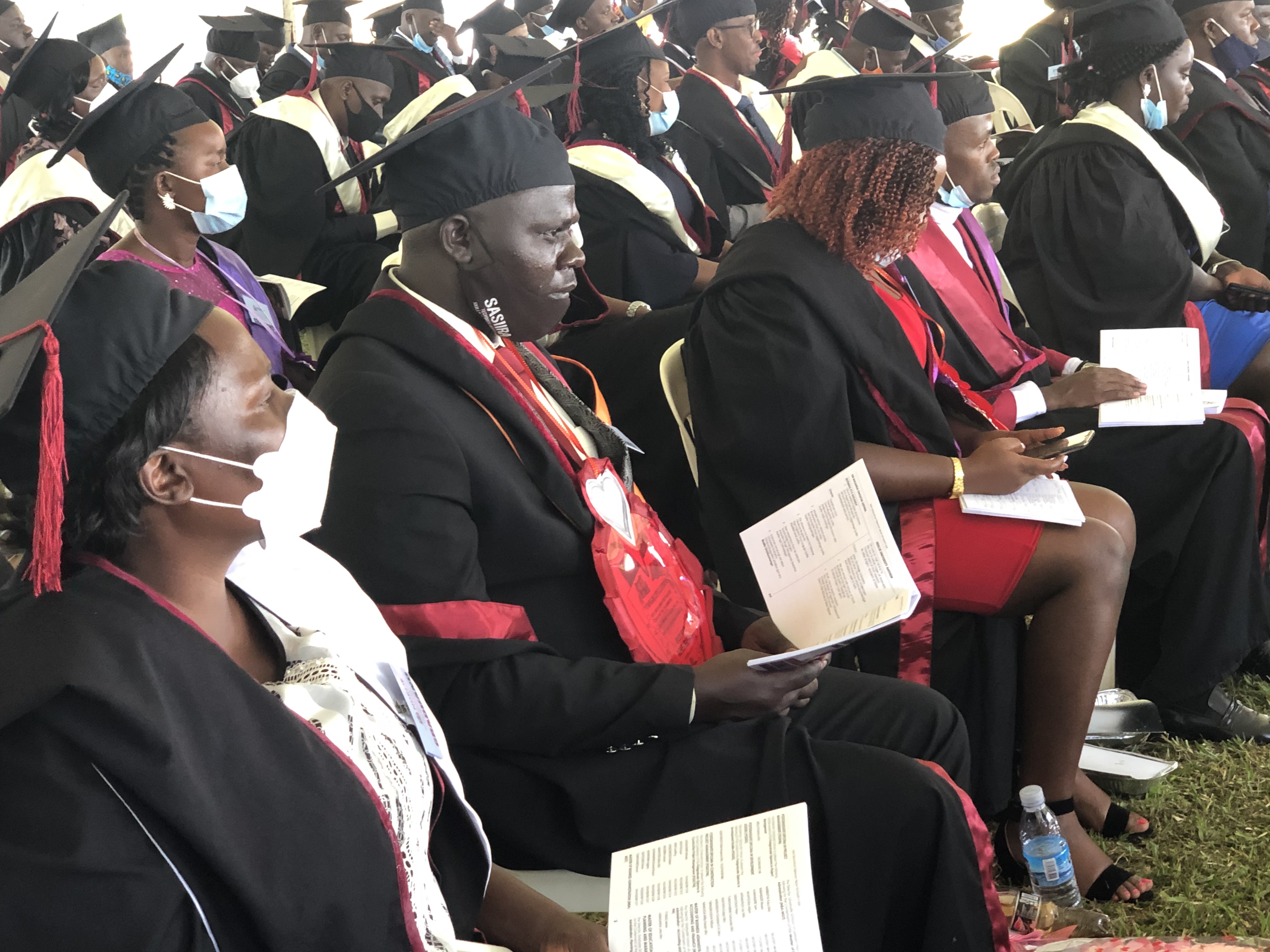
Manyindo noted that the result of research carried out indicate that Online education is beneficial primarily for promoting online research, connecting the practitioner to the global community and getting huge and authentic resource of knowledge. However it has also been observed that time management skills, more freedom to teachers and learners and reliable internet at work places are the extreme challenges.
“Caution however should be exercised that the high demand for and inevitable adoption of online education should not be embraced at the expense of quality,” Manyindo said.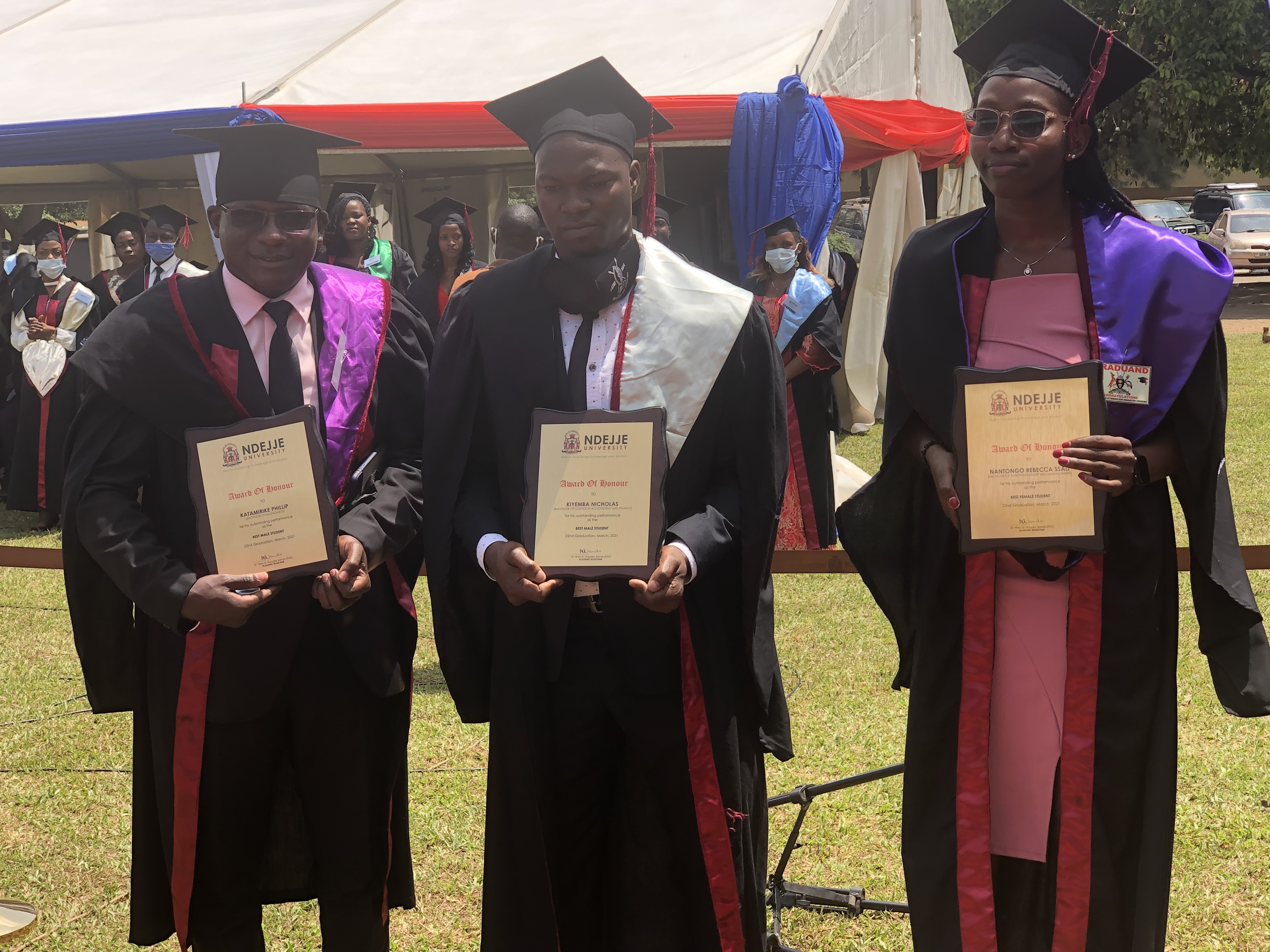
The University Acting Chancellor, Prof. Eriab Lugujjo noted that the University has rolled out COVID-19 Business Resilience Plan to streamline restructuring and reconfiguring the 10-year Strategic Plan.
“The University is using experiences from the COVID-19 pandemic to strategically model its operations, reviewing policies, adaption to current situation to ensure future sustainability,” Lugujjo said.

